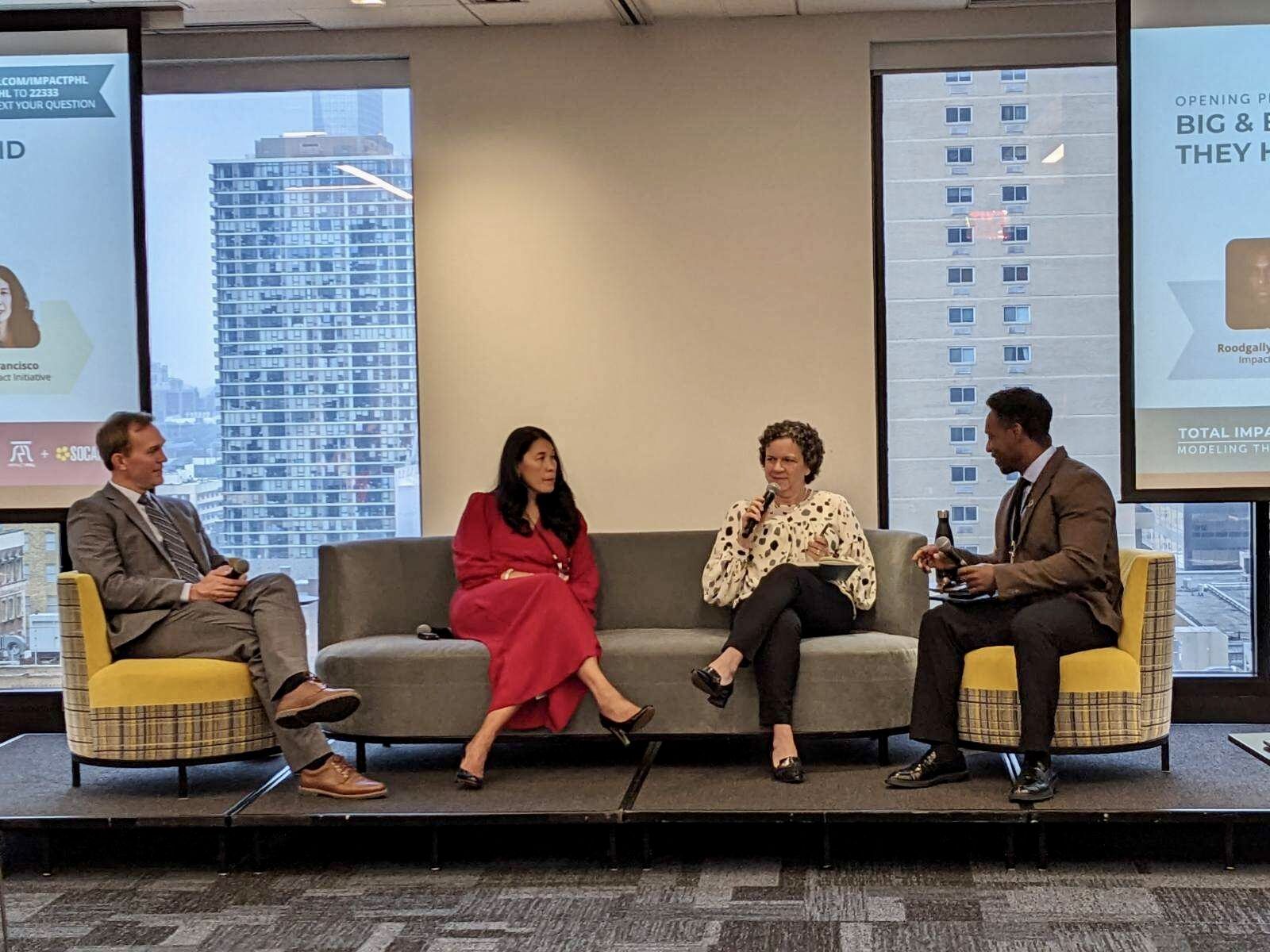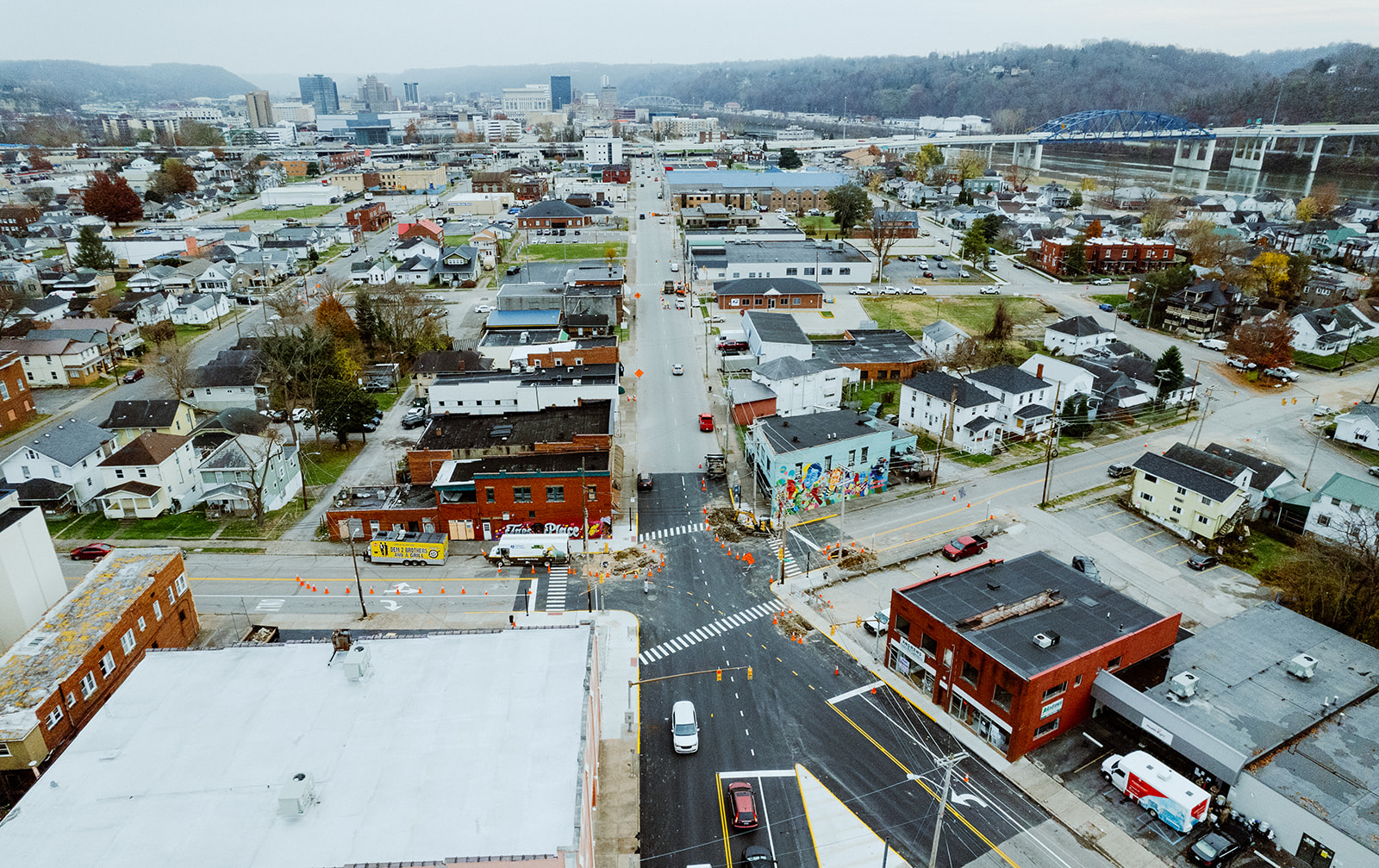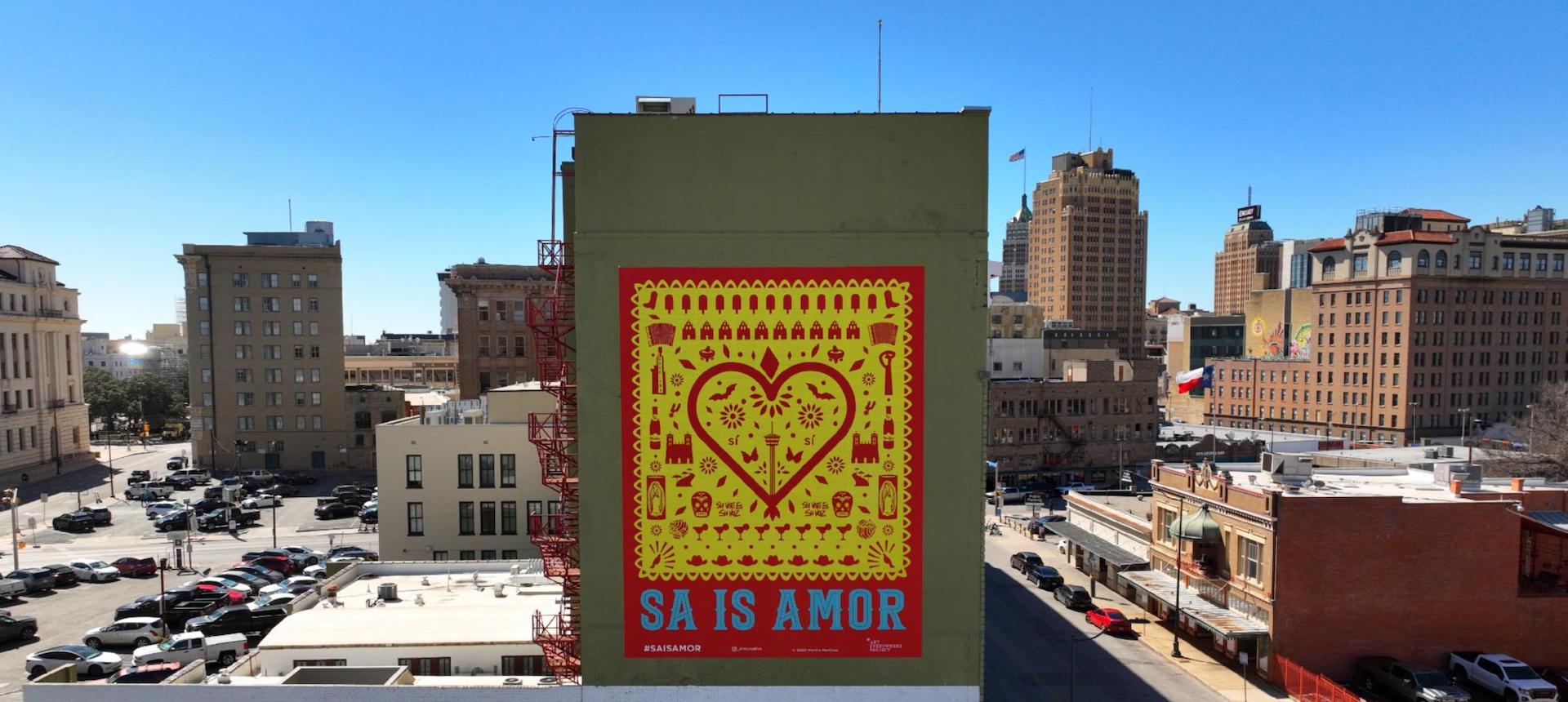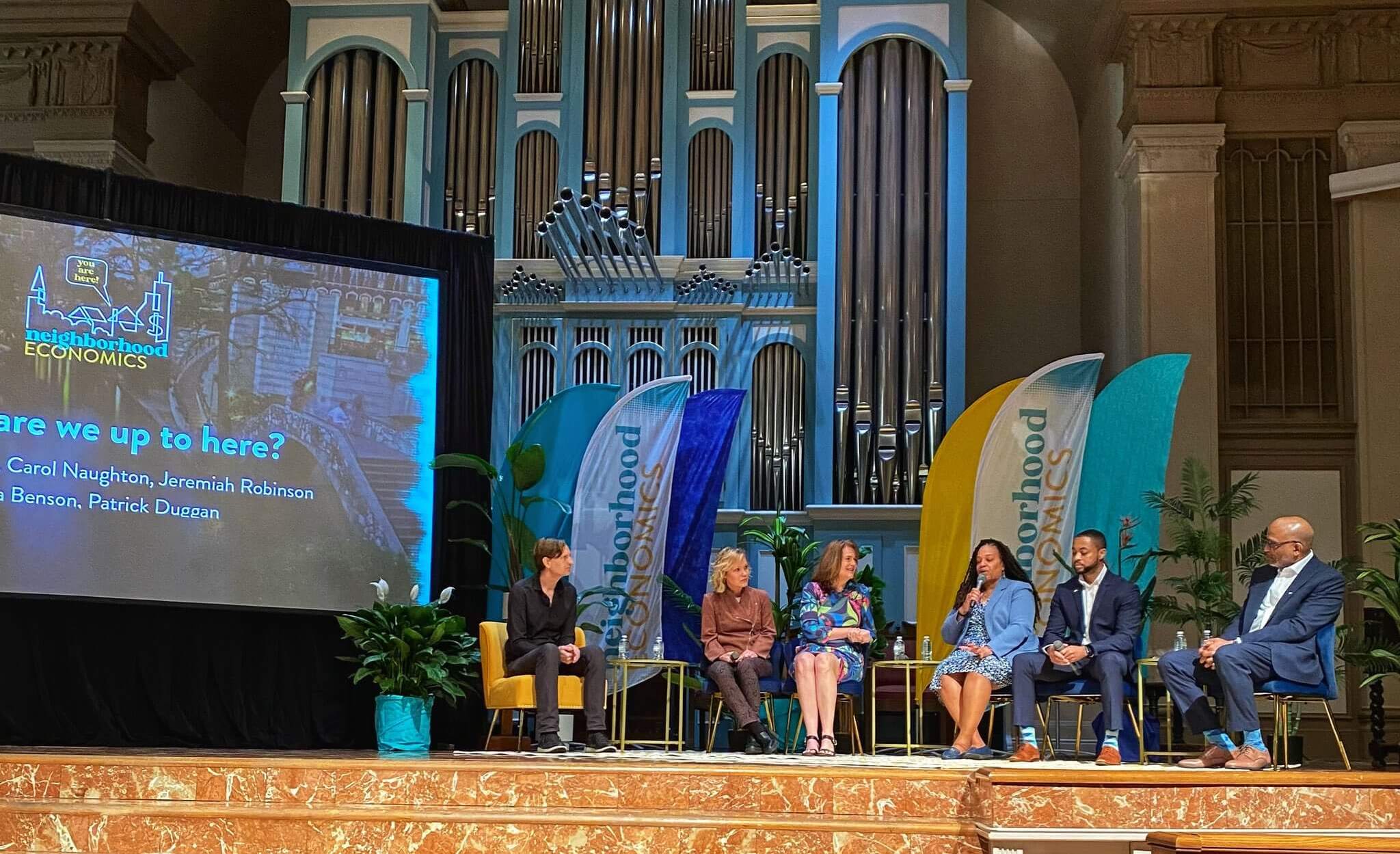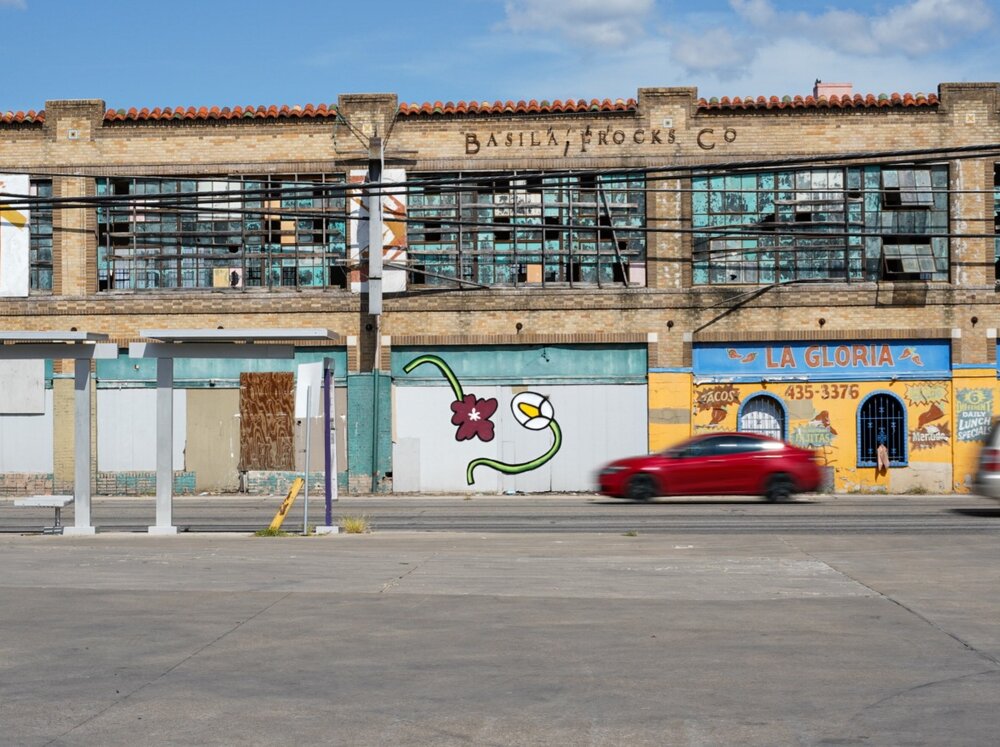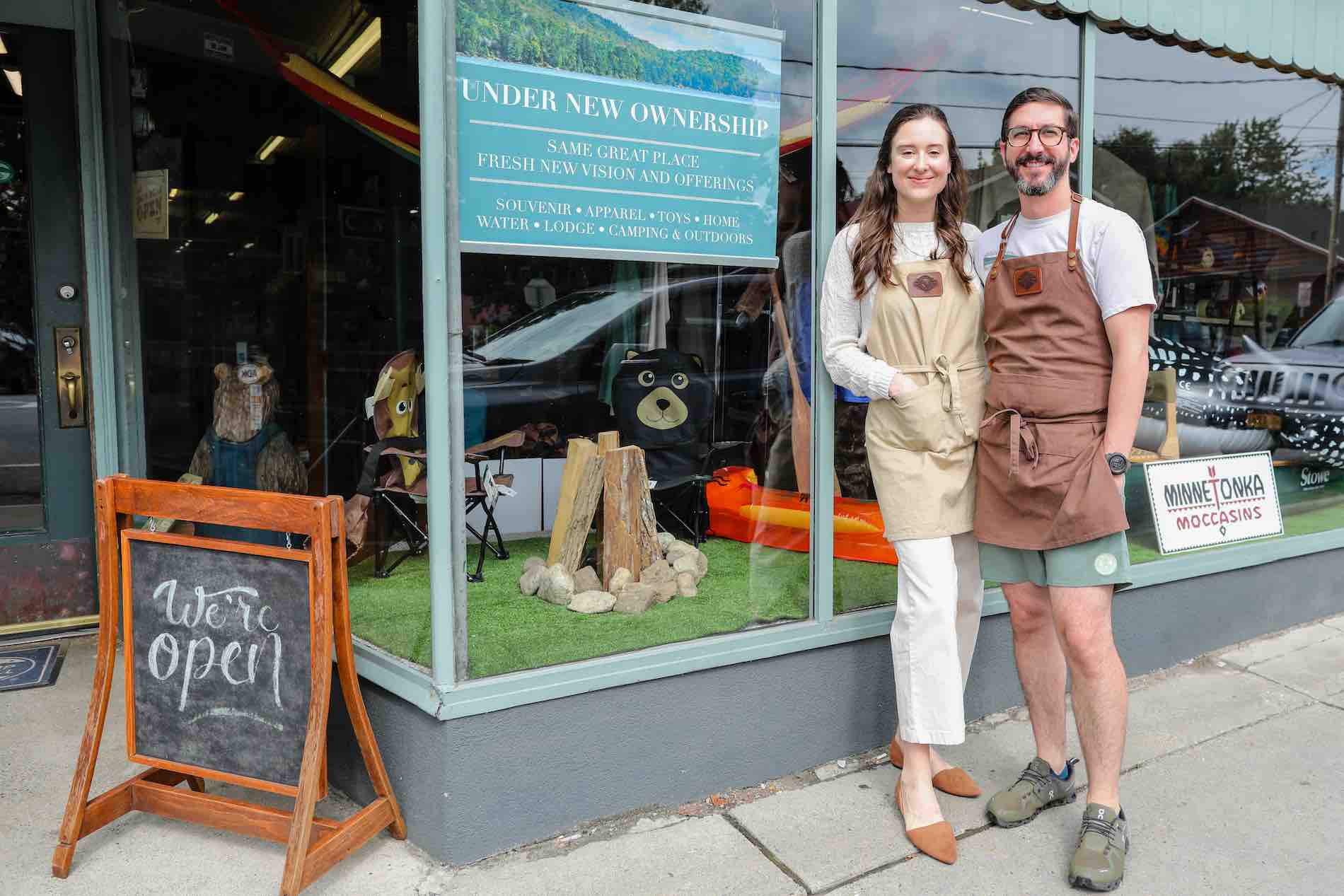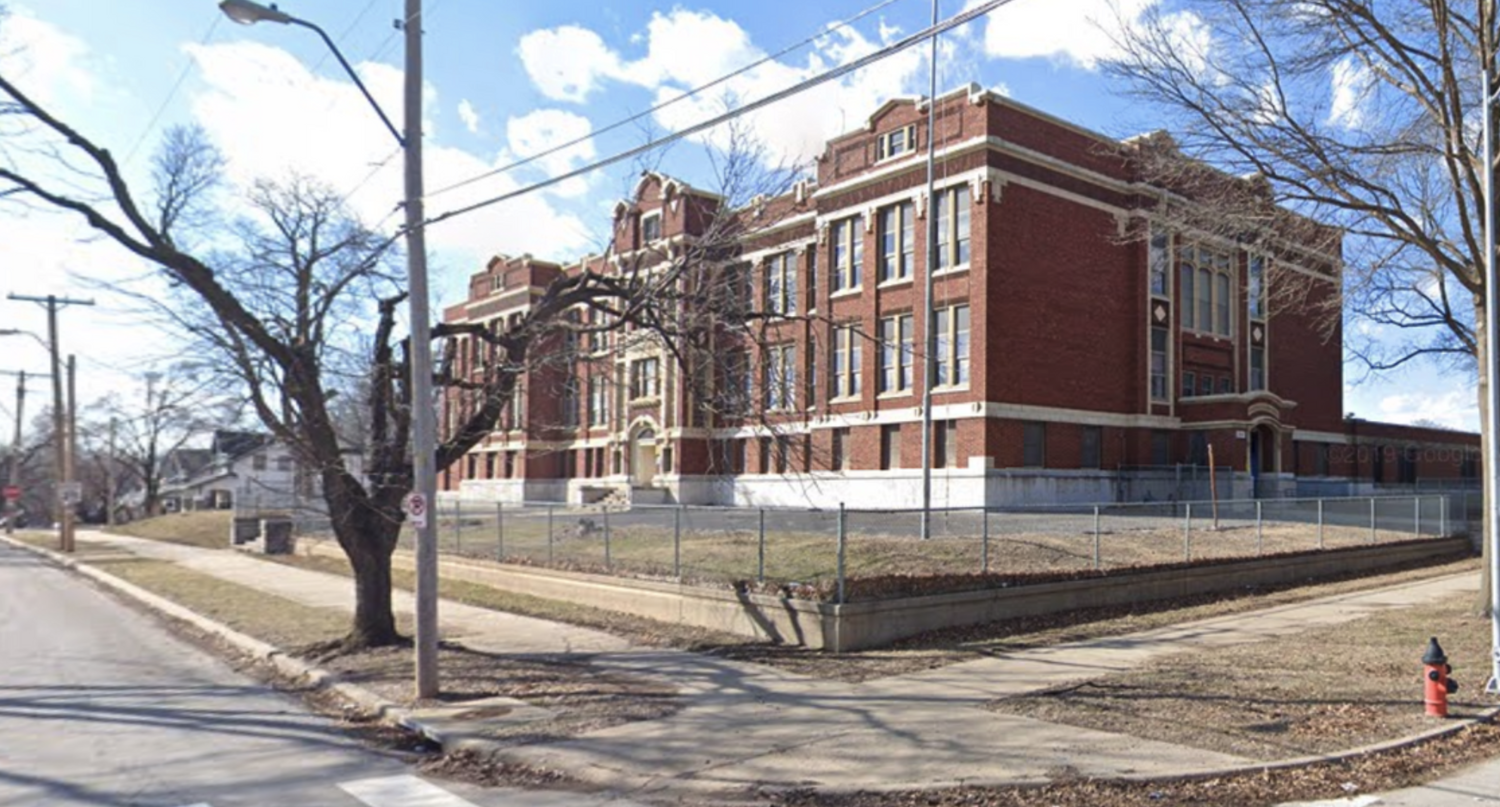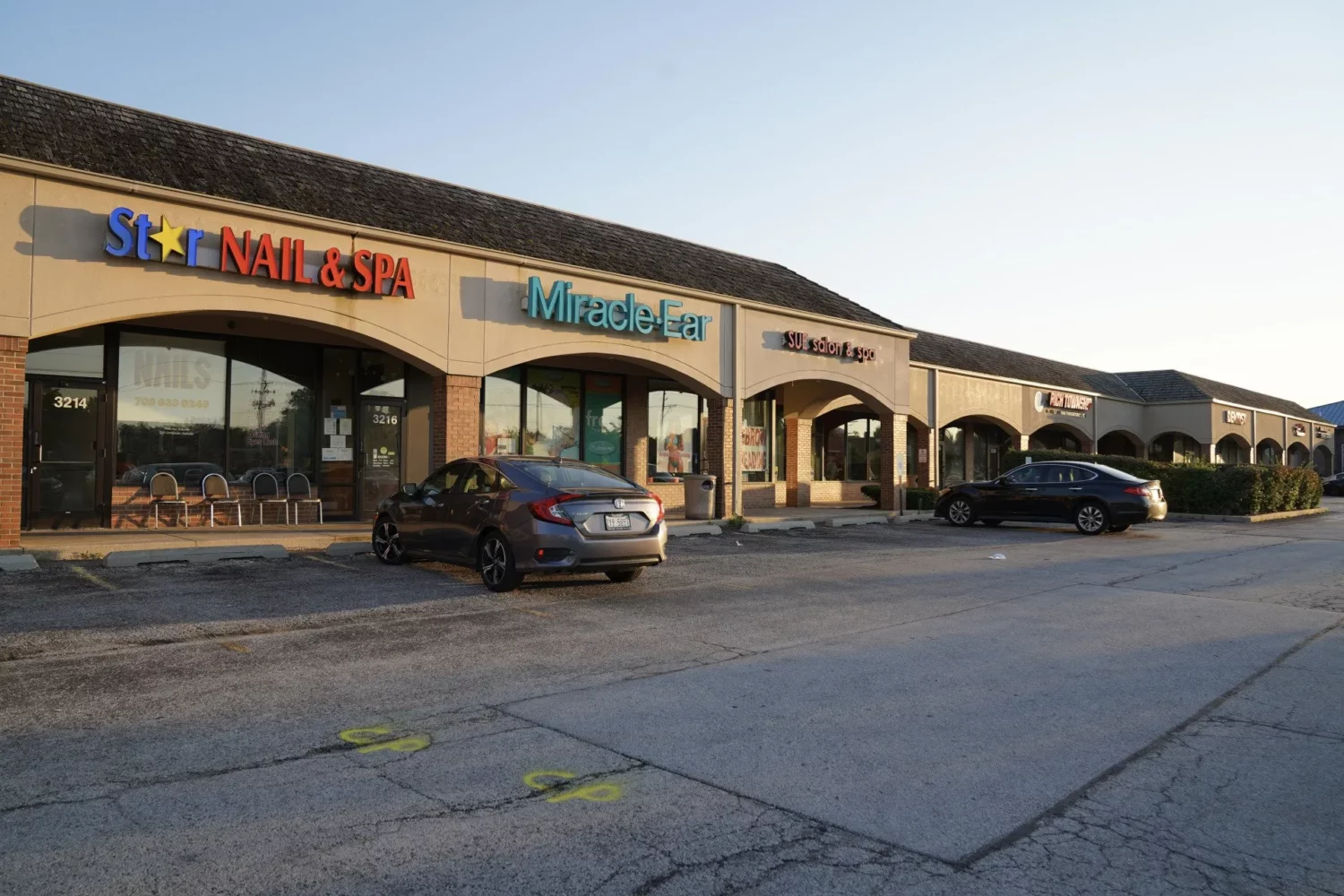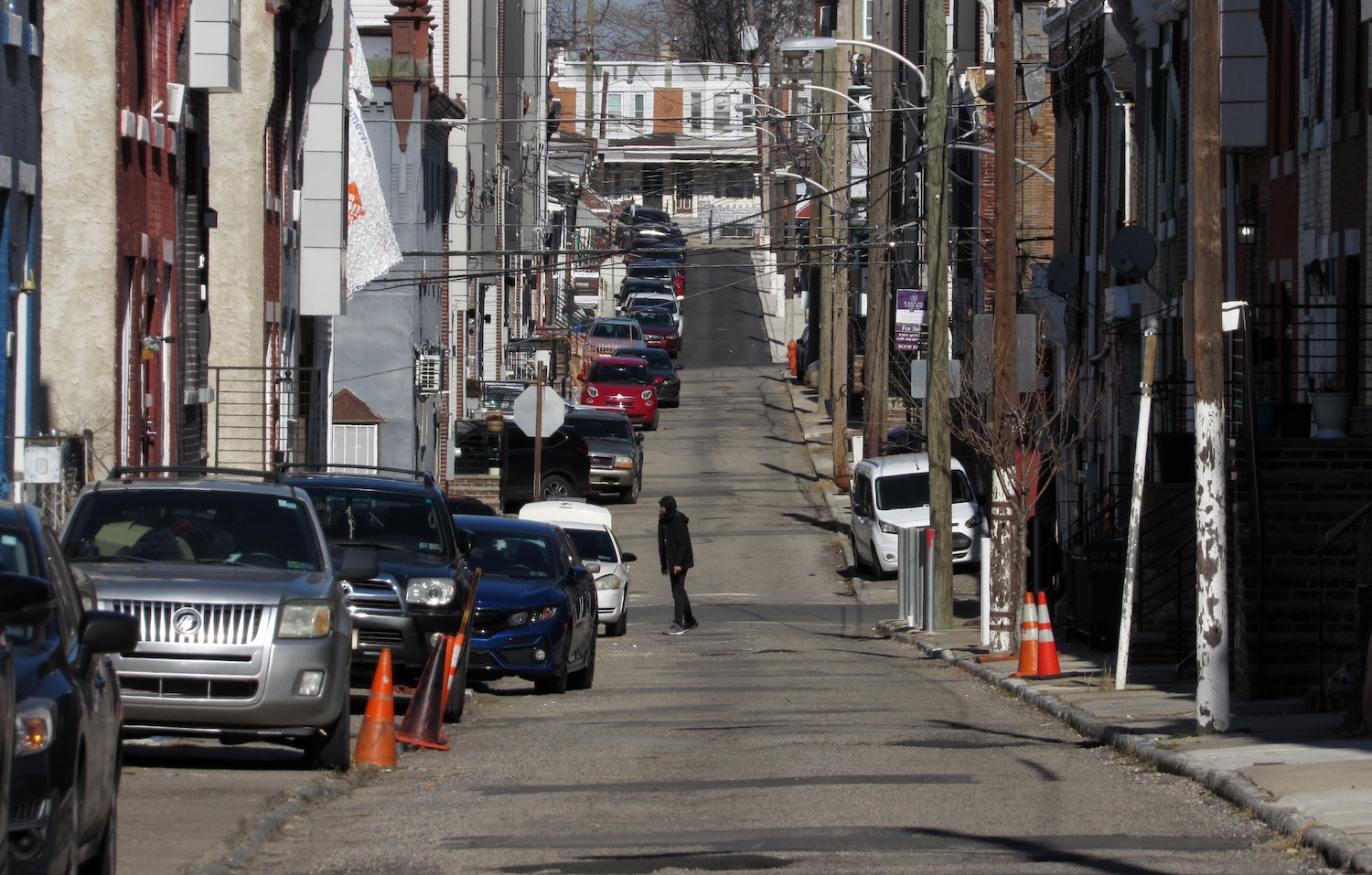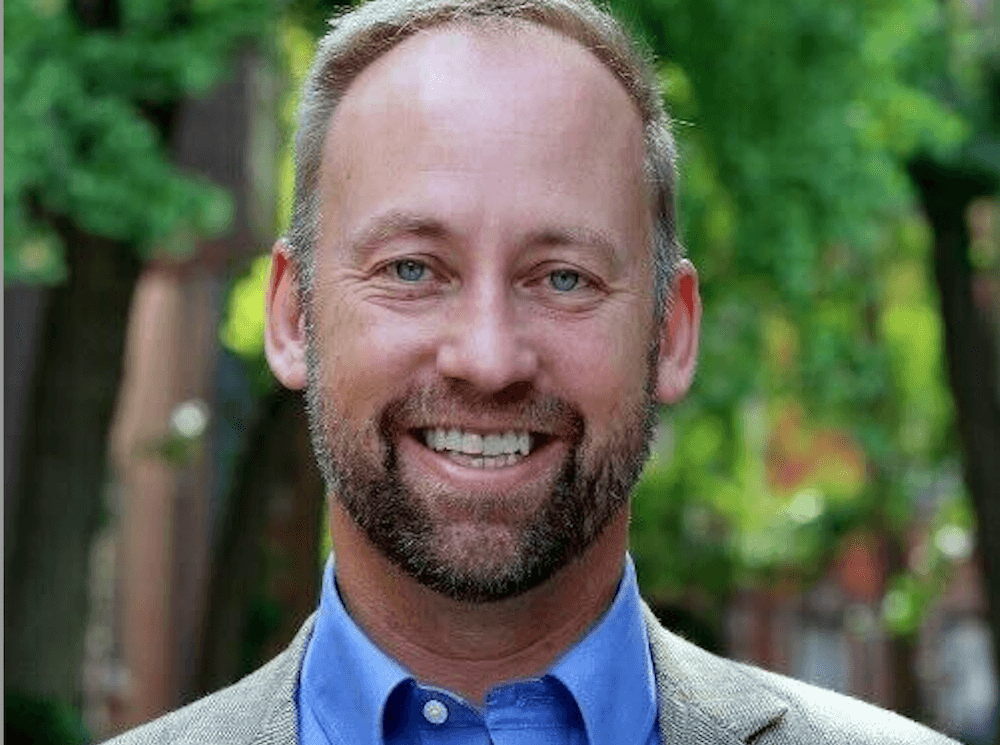Impact investors are building a deeper toolkit for strategic placed-based collaboration. If place-based investing 1.0 was pioneering new models with local partners, then version 2.0 is leveraging lessons learned from early strategies for wider collaborations and broader impact.
Applying these lessons and models – including how to foster collaborative initiatives, more intentionally engage public partners on projects, and blend different pools of capital to solve complex financing challenges – is top of mind for many impact investors as they look to capitalize on the unprecedented federal investment in green infrastructure for underserved communities.
“Place-based 2.0 is about how you branch off,” said Betty Francisco of the Boston Impact Initiative, which started out in 2013 with a pilot charitable loan fund to bridge racial wealth gaps in the city of Boston. The nonprofit impact investor is now raising a $20 million second fund to invest throughout the entire state of Massachusetts and in select communities in the broader New England region (see, “The Liist”).
“We’re starting to build relationships in other areas,” says Francisco, “asking the partners on the ground, ‘what do you need and how can we be helpful?’”
BII provided a $500,000 subordinated loan to East Boston Community Development Corp. in 2022 to create the first mixed-income neighborhood trust in Massachusetts, and acquire 36 multifamily properties that will be preserved as affordable units for low-income residents in perpetuity.
BII tapped its local network to bring in different pools of capital to complete the $52 million portfolio acquisition and make the units as affordable as possible for residents.
“We brought in a bunch of impact investors from individuals, high net worth folks, family offices, but also a lot of local foundations,” said Francisco during a panel at ImpactPHL’s Total Impact Summit last week in Philadelphia. The discussion centered on how impact investors are taking creative approaches to making big and bold bets to drive place-based impact.

Some of the key takeaways from the East Boston deal, Francisco said, was “learning to work at the pace of the community.” Also, “what this transaction showed and is really important with a lot of, obviously place-based investments, is that it can only get done where you have deep trusted relationships with multiple stakeholders.”
The MacArthur Foundation’s Allison Clark and Ben McAdams of Common Ground Institute, a public policy development organization also participated in the panel, moderated by (yours truly) ImpactAlpha’s Roodgally Senatus.
“To move from place-based 1.0 to 2.0, I would encourage people to just jump in, and not fall into analysis paralysis,” said McAdams, a former mayor of Salt Lake County and congressman, who helped craft one of the country’s first social impact bonds for funding early-childhood education programs in Utah. As a Sorenson Impact senior fellow, McAdams launched Putting Assets to Work, a policy incubator program that works with city governments to map out and repurpose their stocks of underutilized real estate.
“Almost always these parcels are either in historically disadvantaged communities or they’re in communities where historically disadvantaged populations were forced out,” MacAdams said. “What we’re working on right now with that policy incubator is how to bring competency to governments that are overwhelmed, overworked, underpaid, and help them to have this expertise.”
Public-private partnerships
Putting Assets to Work has worked in more than a dozen cities, including Atlanta, Cleveland, Annapolis, Chattanooga, Lancaster, Calif., and Harris County, Texas to help governments map out their untapped real estate. Federal government estimates suggest there could be approximately 77,000 empty or underutilized buildings in the US that are costing taxpayers billions.
In Atlanta, McAdams worked with mayor Andre Dickens to set up an urban wealth fund that will repurpose the city’s roughly $8 billion stock of unused real estate to create 20,000 units of affordable housing by 2030. Once the assets are generating income, proceeds will go back to communities in the form of public benefits.
One of the goals is to create wealth for city governments to funnel into underserved communities. An even bigger goal, says McAdams, is to do it in partnership with impact investors.
“Sometimes I see private impact investors throw up their hands saying, ‘we can’t work with the government, and so we’re going to try to fill in the gaps for where government impact is failing,’” McAdams observed. “That to me is shocking because when you look at private impact dollars compared to government impact dollars, government impact dollars is where it’s at.”
That’s especially true as the Biden administration has passed a trio of bills channeling historic levels of federal funding to rebuild local supply chains and green the economy, with an emphasis on lifting up underserved communities.
In Cleveland, McAdams is working with Mayor Justin Bibb on a community revitalization fund and local stakeholders mobilized efforts to incubate and launch one of the nation’s first Black-led green banks. Cleveland-based green bank Growth Opps is leading the Industrial Heartland Solar Coalition, which won a chunk of the $7 billion Solar for All grant competition, part of the Greenhouse Gas Reduction Fund.
The city-led Site Readiness Fund for Good Jobs includes a coalition of local private partners including Cleveland Foundation and Cuyahoga Land Bank to reactivate 1,000 acres of underutilized land to create good jobs, build real estate and drive wealth for local communities.
Place-based catalytic capital
MacArthur Foundation, through a partnership with the Chicago Community Trust and Calvert Impact Capital, launched the Benefit Chicago Fund in 2016 to raise and invest $100 million in patient, flexible and risk-tolerant capital in social enterprises in Chicago.
The place-based impact fund fund is nearly completely invested, said McArthur’s Allison Clark. “We’ve made 27 investments in 24 different organizations in real estate or affordable housing, community development and small businesses, and the vast majority has been loans.”

Benefit Chicago’s portfolio include AutonomyWorks, a social enterprise that employs adults with autism; Sweet Beginnings, a honey producer that employs criminal justice involved citizens; and Cleveland Avenue, an impact fund that invests in Black, Latinx and women business owners in Chicago’s south and west side neighborhoods.
Clark has helped sharpen McArthur’s catalytic capital approach to back new place-based impact strategy outside of Chicago and collaborate with locally-based funds and initiatives in different US cities.
MacArthur was the final check in Invest Appalachia, which, similar to Benefit Chicago, is taking a catalytic approach to advance economic inclusion, health equity, climate resilience and place-based impact in Central Appalachia.
“Invest Appalachia is an interesting fund focused obviously on a very challenged geography,” said Clark. “It’s a very interesting governance model because they’re working very intentionally to empower representatives from local communities to be on their investment committee. So it’s a little different than some of the funds we’ve invested in the past,” she added.
In San Francisco, Tulsa, Charleston and Sioux Falls in South Dakota, MacArthur formed a partnership with the Urban Institute to help communities with populations involved with the criminal justice system to bridge the gap between housing instability and incarceration.
“Communities are struggling because of a lack of affordable housing that’s pushing people into, and keeping them trapped, in a cycle of justice involvement,” said Clark. “These are people who are not even booked into prison if convicted, but they’re just cycling in and out of jail, and that prevents them from accessing affordable housing, which just then perpetuates the cycle.”
Through the Just Home Project, community-led organizations receive up to $5 million from MacArthur to build new affordable housing. Urban Institute provides technical assistance. Other partners include the Justice Policy Center, Research to Action Lab and the Metropolitan Housing and Communities Policy Center.

